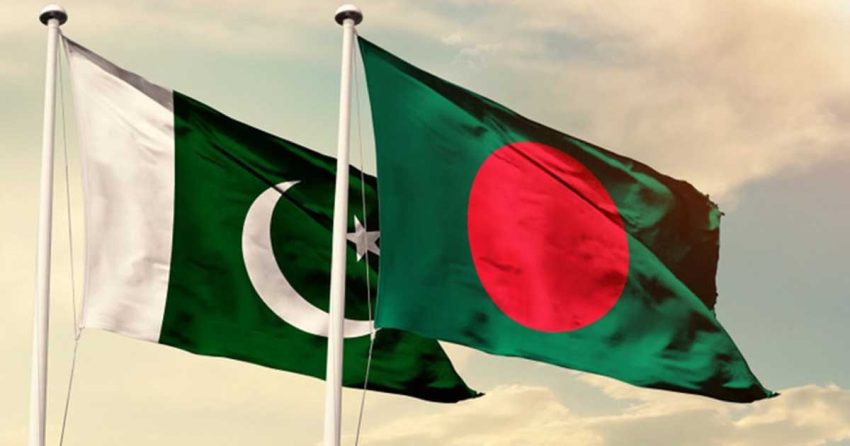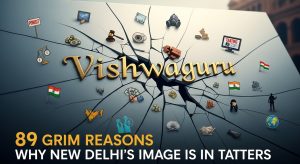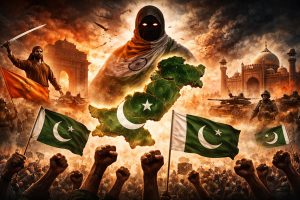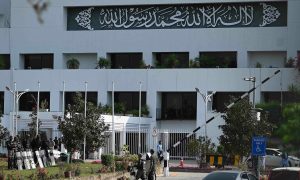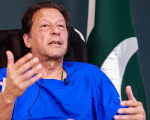Bangladesh achieved its second independence as a consequence of Monsoon Revolution in July-August 2024. Bangladeshi youth sacrificed almost two thousand lives to mark success. They celebrated the decimation of Sheikh Hasina’s brutal regime which ruled the country for 16 years.
Hasina relied on India’s support to retain power with brute force and repression against her opponents. Her government was also involved in massive corruption. Taking advantage of Sheikh Hasina’s weaknesses, India turned Bangladesh into a client state which could not take decisions independently. Modi used the Bangladesh liberation card, while Sheikh Hasina obliged Modi by offering concessions in many vital projects and areas. RAW operatives were placed everywhere to oversee the functioning of the government. India’s blatant interference in Bangladesh’s internal affairs, and Sheikh Hasina’s overreliance on India were something that the people hated and challenged.
India has not managed to digest the embarrassment caused by an unceremonial retreat from Bangladesh. It has not accepted Hasina’s downfall, and now preparing schemes to destabilise Bangladesh, including by playing minority persecution card and fueling communal violence. Hindutva thugs have lately attacked Bangladesh’s consular missions in India, seemingly with an official nod. Indian Foreign Secretary Mr. Vikram Misri visited Dhaka this week to reduce heightened tension. The differences between the two countries are too wide to be able to resolve so quickly and easily.
Toppling Sheikh Hasina’s regime and her backer India was a great feat. The people of Bangladesh have managed to restore the country’s honour and dignity by challenging India’s hegemony in the region. India could not digest the humiliation it suffered at the hands mainly of Bengali youth. It could not read the popular sentiments against India’s colonial conduct pursued through Sheikh Hasina. India is finding it difficult to accept Bangladesh’s newfound freedom and assertive conduct. It wants to contain Bangladesh while the latter refuses to accept a vassal state status which was arranged comfortably with Sheikh Hasina. Indian media has lately created a hype against Bangladesh. As a large neighbour with enormous military muscle, India could behave irrationally. Bangladesh’s geographic location, surrounded by India from three sides with 4,035 kilometers long borders, makes it vulnerable. Indian analysts are threatening to annex a portion of Bangladesh’s territory to establish a “Hindu state” in the northeast for the protection of the Bangladeshi Hindu population. Its hidden agenda could be to widen its chicken-neck access to Seven Sisters states. India is gauging Bangladesh’s reaction. Its next move could be to occupy Bangladesh physically, either completely or partially.
Under the circumstances, the option for Bangladesh is to initiate dialogue with India to remove misgivings. At a later stage, Bangladesh will require to approach its neighbours for help. It is not clear how much support Nepal, Sri Lanka, Afghanistan, Maldives and Bhutan may offer.
Listening to Bangladeshi scholars and analysts one gets the impression that Bangladeshis are pinning a lot of hope on Pakistan, despite their unpleasant experience of 1971. Some are suggesting a need to build special ties with Pakistan. Bangladesh could seek a Confederal Arrangement with Pakistan. A strong formal arrangement between the two countries could dissuade India from any misadventure towards Bangladesh. The original Confederal Arrangement envisaged in the Lahore Resolution of 1940, and adopted later in the Six Points agenda of Sheikh Mujibur Rahman, could form the basis. It could be a practical way out for Bangladesh to ensure its sovereignty and territorial integrity. This arrangement could be acceptable to Pakistan also in the interest of promoting brotherly ties with Bangladesh. Such an arrangement would give a reason to 250 million Muslims in India to celebrate.
The above proposal will need to be discussed between the governments of Pakistan and Bangladesh at length. Intellectuals and academicians could also deliberate. If acceptable to both sides, a referendum could be considered in both countries for public evaluation of the proposed arrangement.
The author is a retired ambassador.

